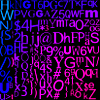Here's my feelings on this...
I basically learned programming in college, and they taught C first and then C++. I remember having a real hard time dealing with concepts like pointers, memory allocation, making data structures like linked lists, etc. But I think learning it gave me an edge over a lot of people. It just gives you a more intimate understanding of how things actually work "inside" your computer, and even if you wind up coding in C# or something else where you don't need to worry about pointers and memory addresses...that knowledge will help you.
That said, I'm not sure if I would have successfully learned C or C++ as my first languages without the pressure of a university grade on me and the resources of the university to help. It really
can be frustrating at times. In the end, I would say give it a shot if you want, but if you find yourself struggling with pointers to the point where you want to quit, then you may want to mess with C# just to get your confidence back.
Trust me, after you deal with C++, C# will be a walk in the park

!











